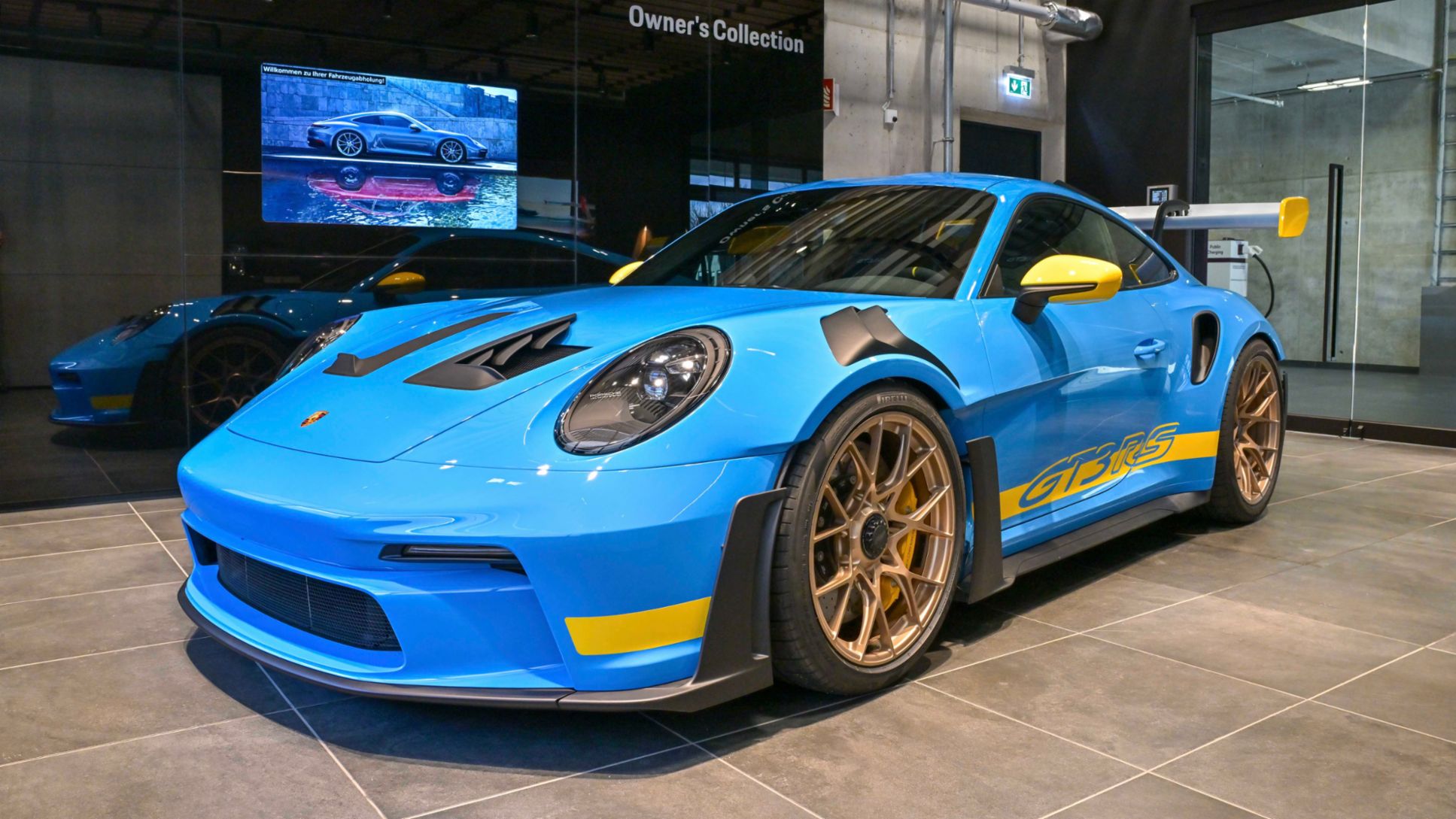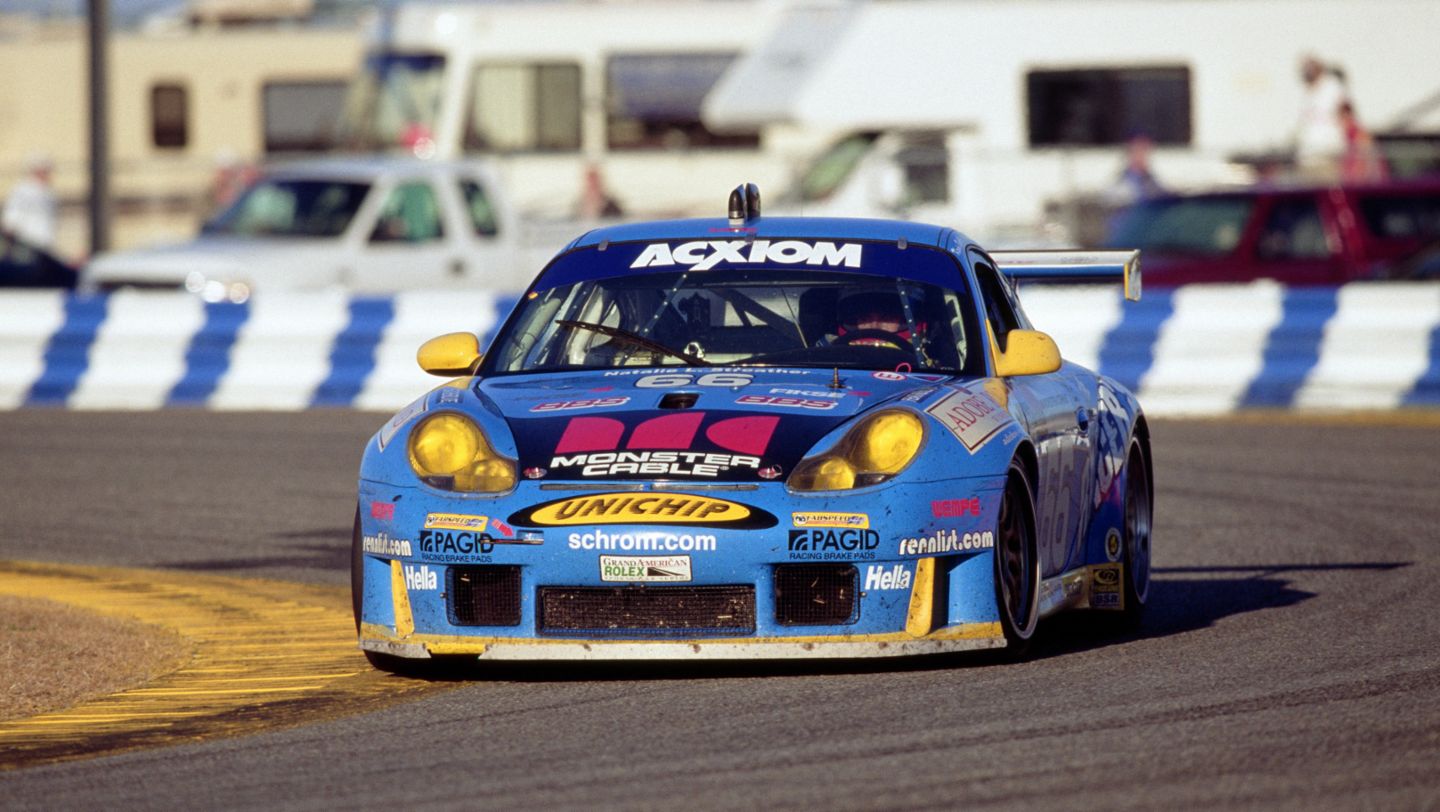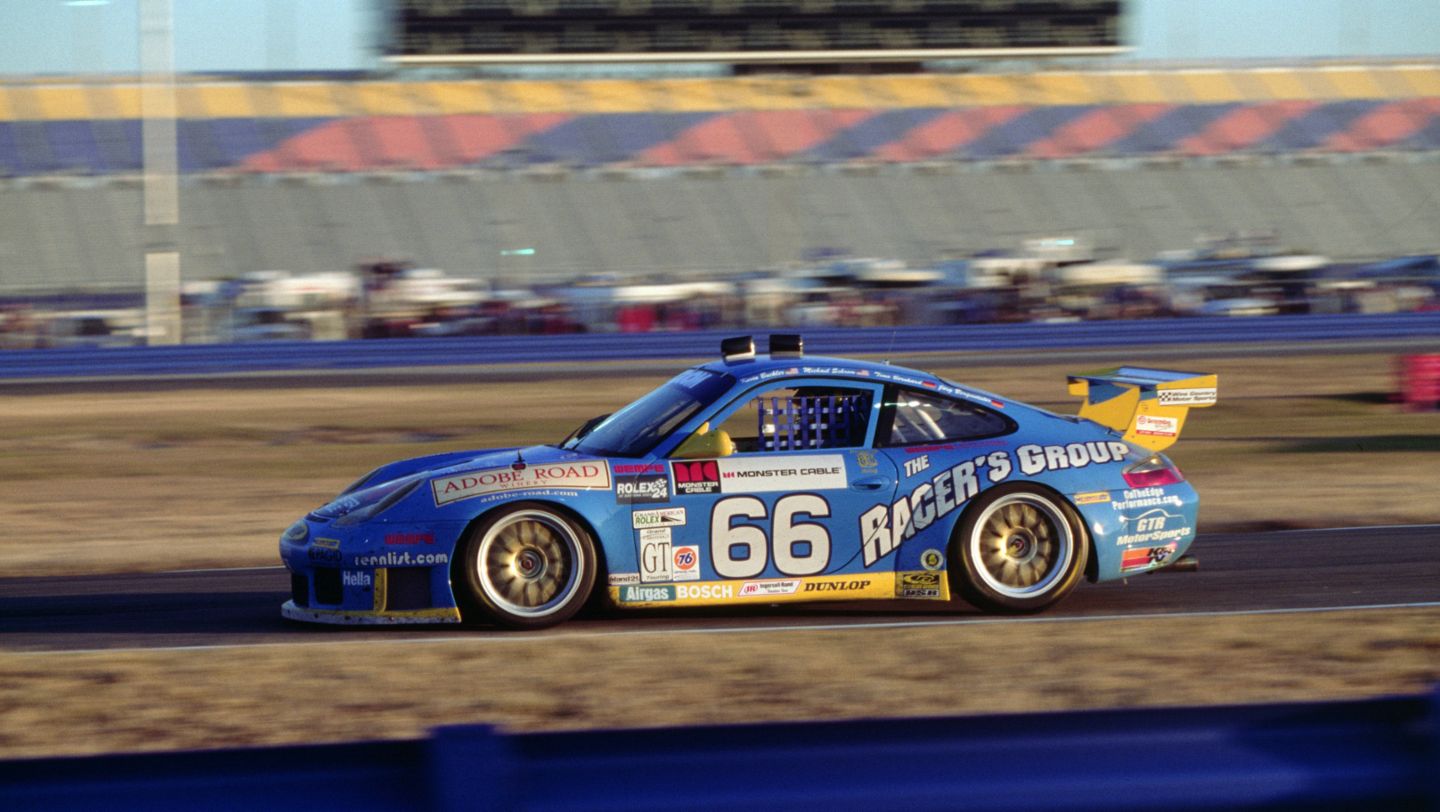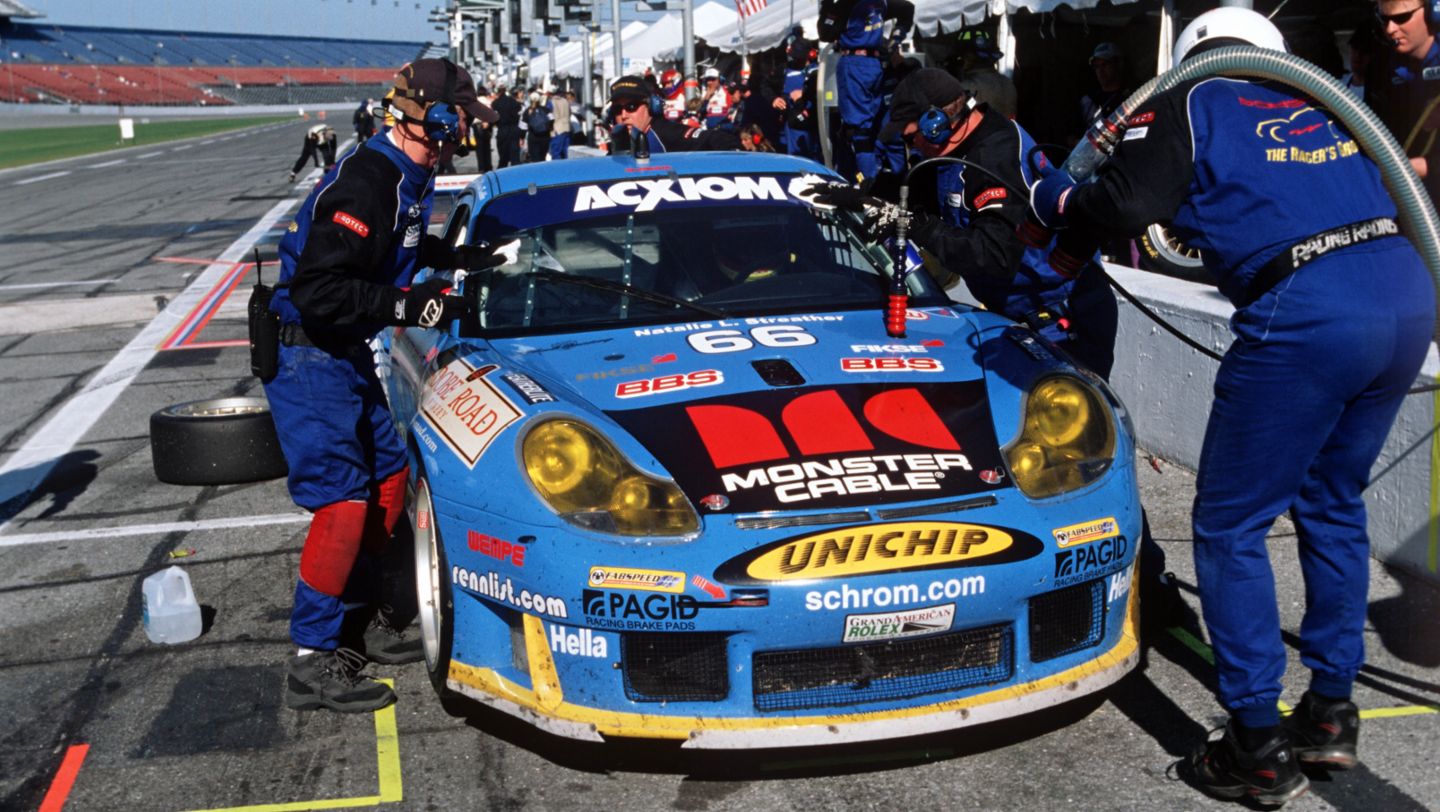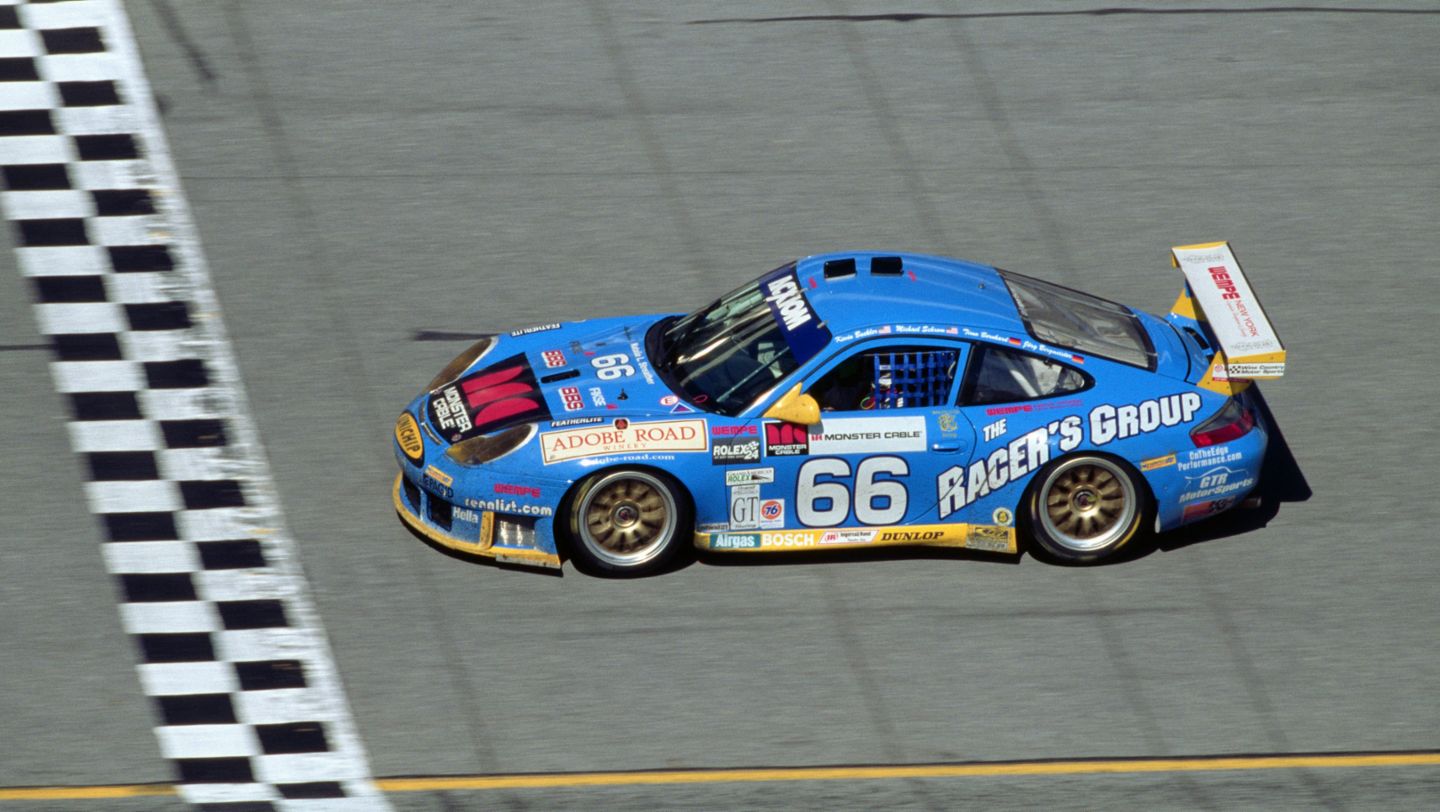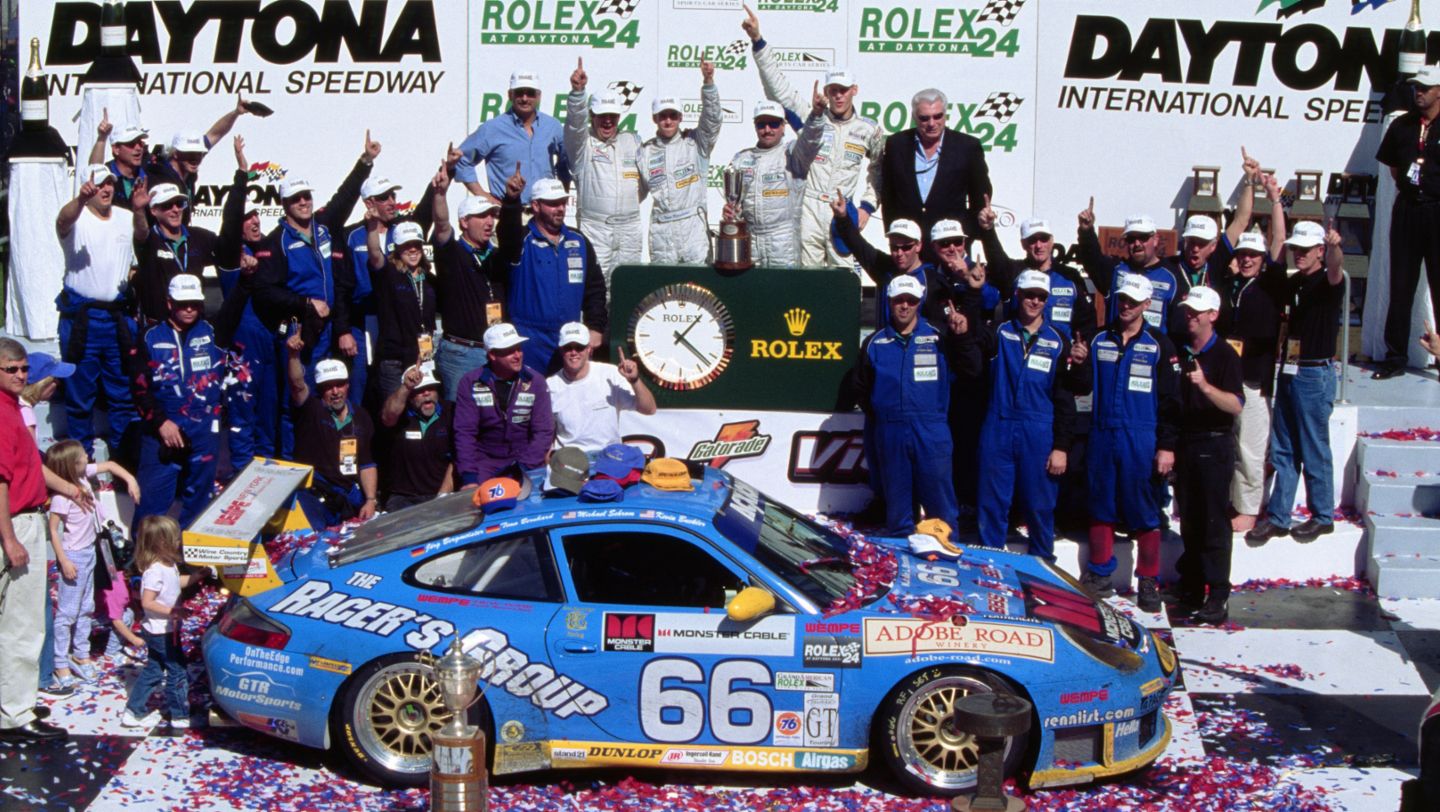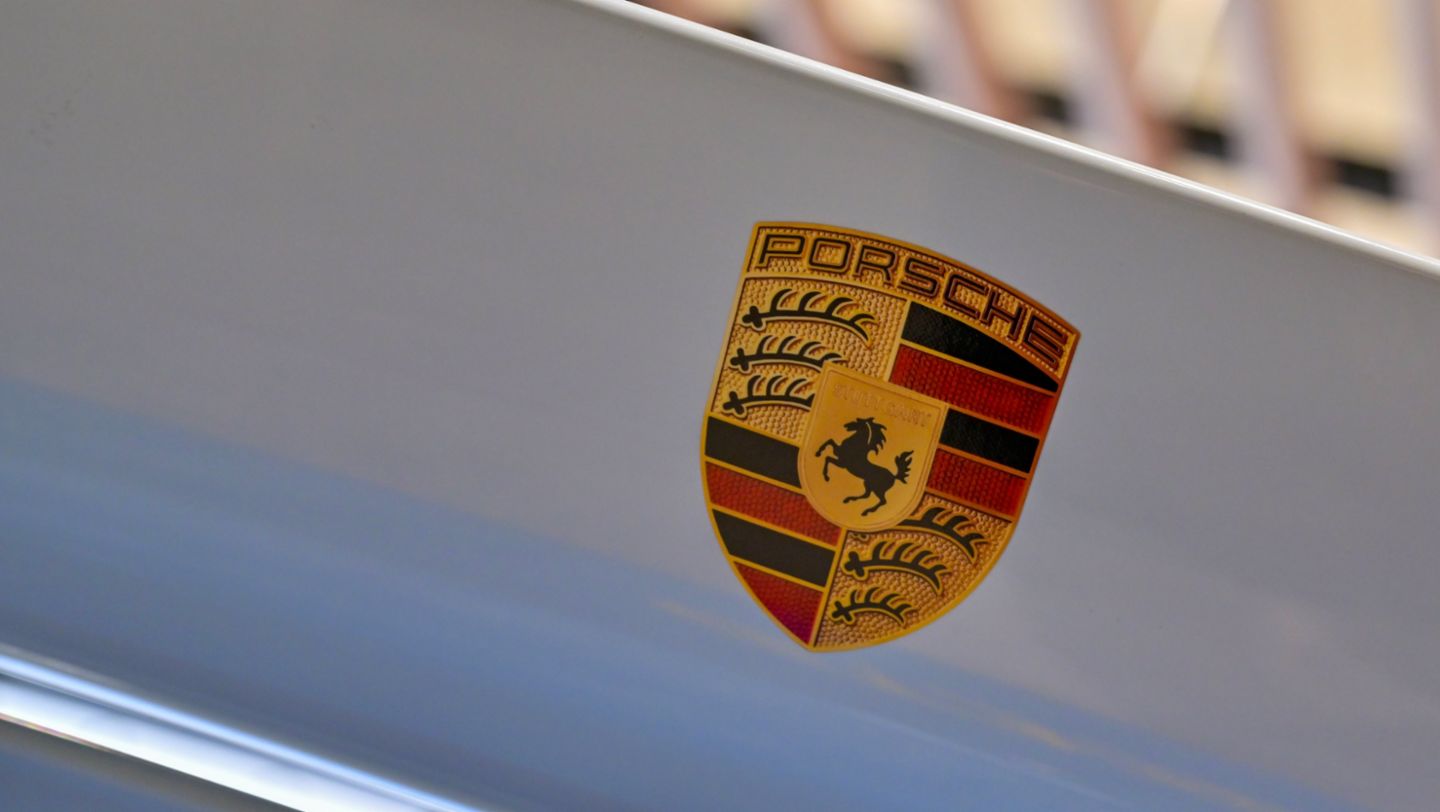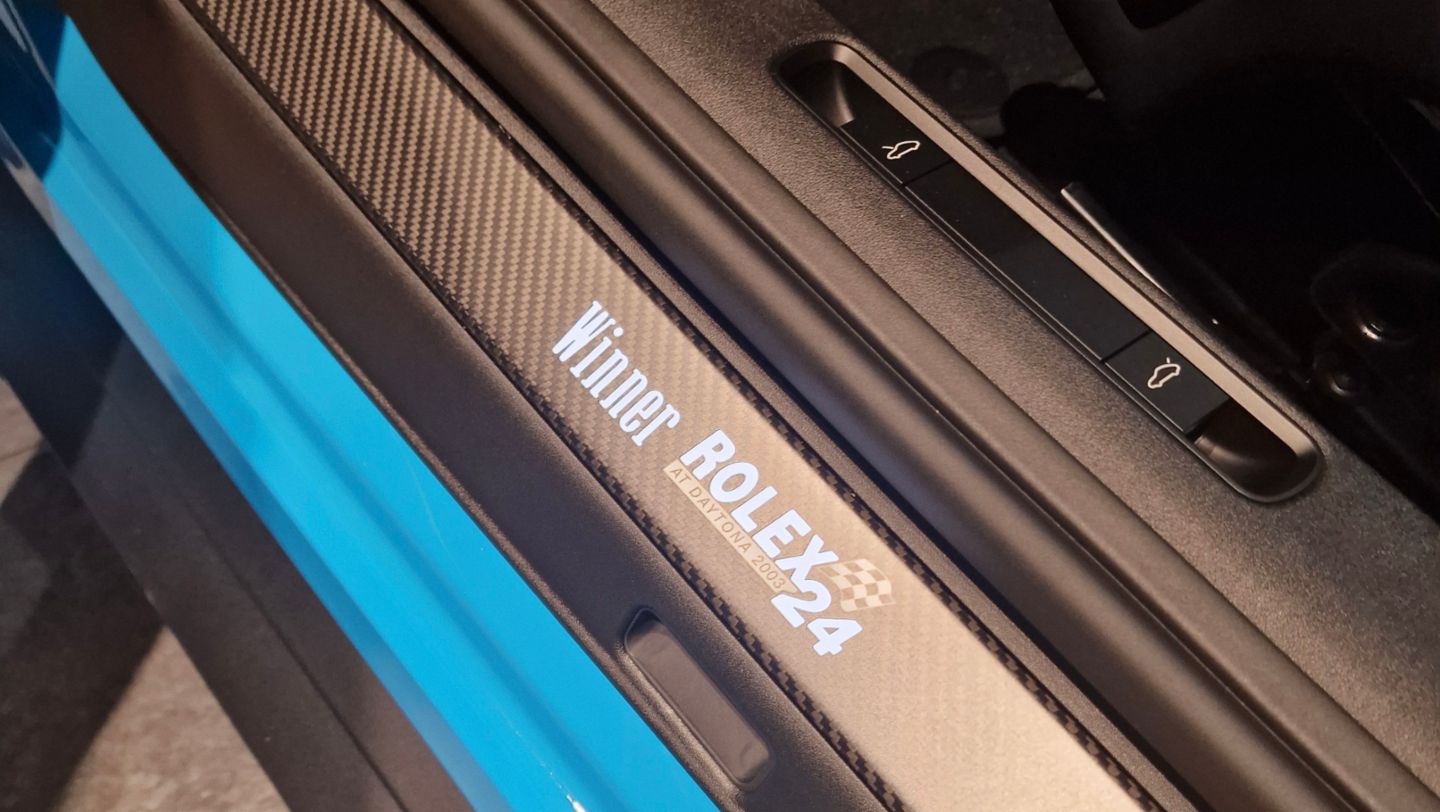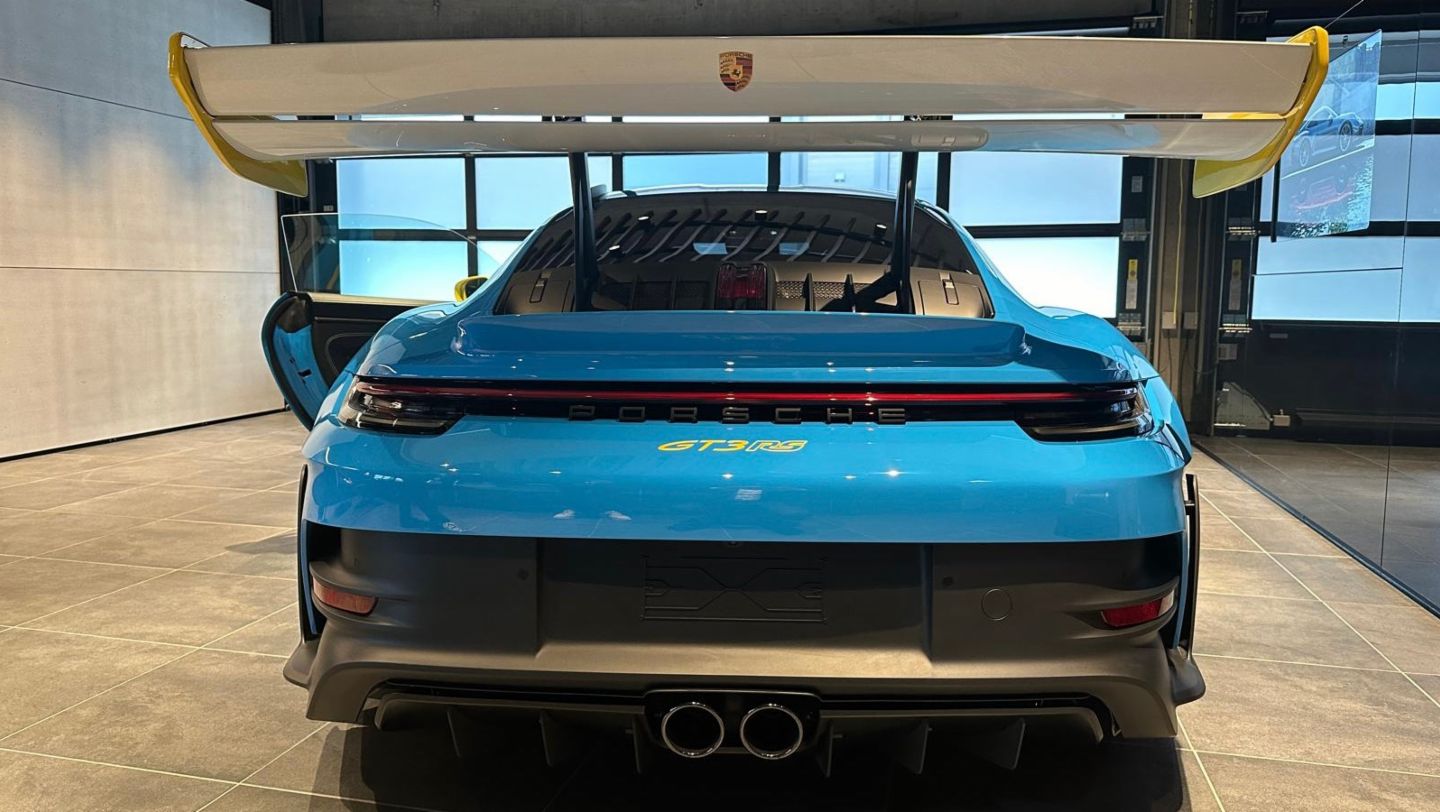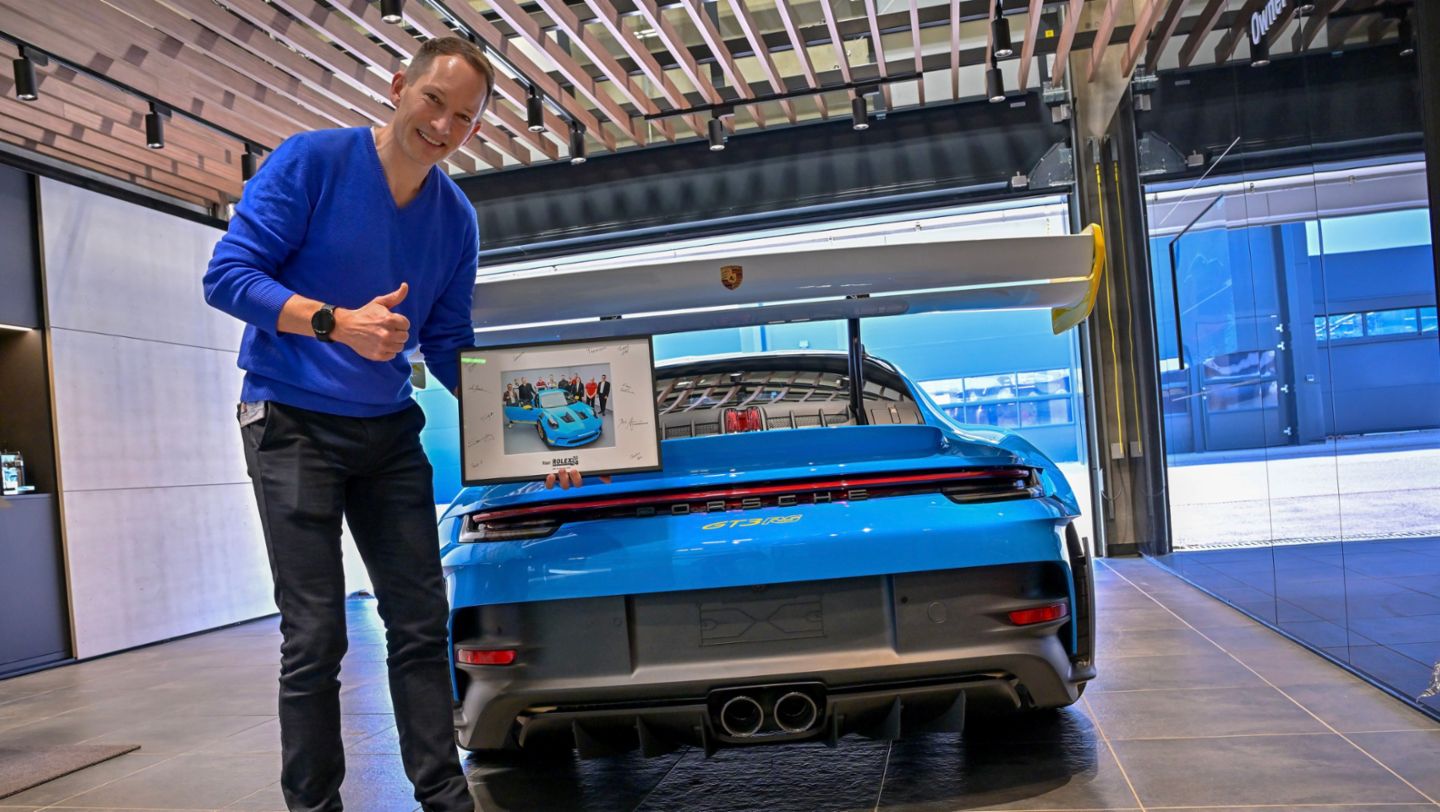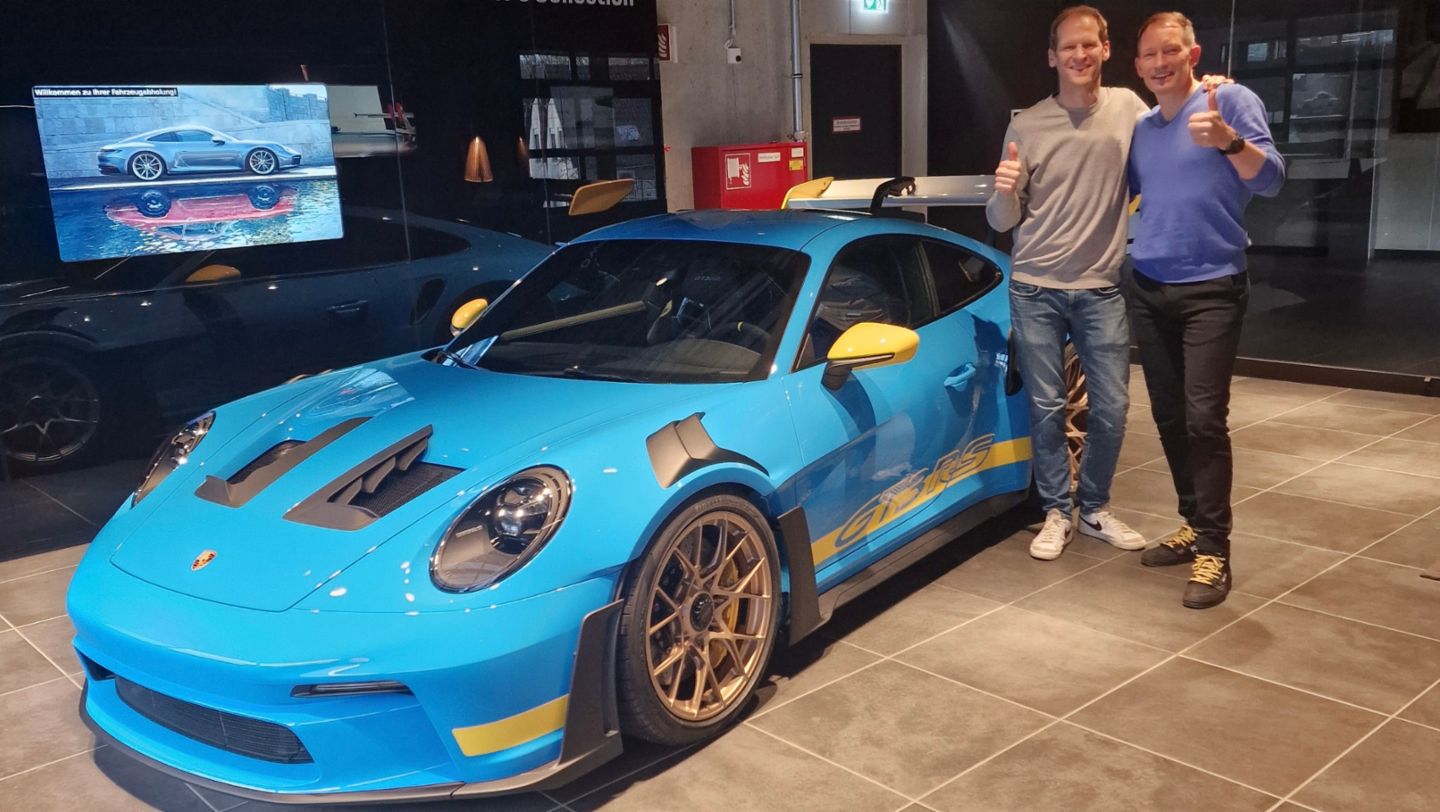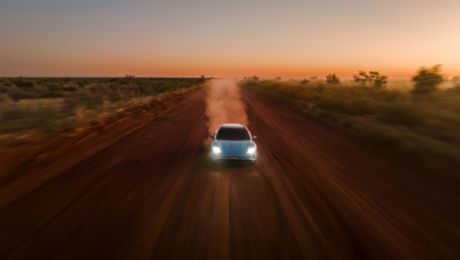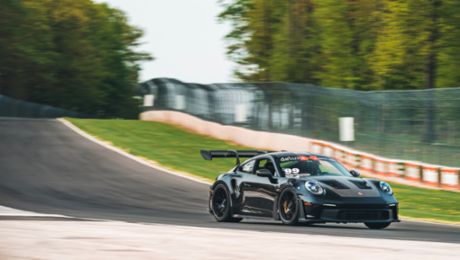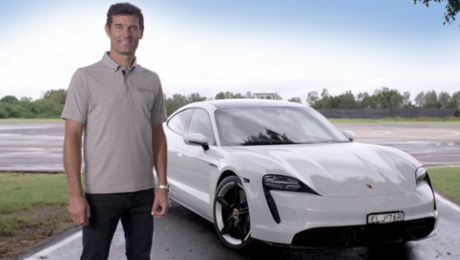The afternoon of 2 February, 2003, was a historic day for Porsche. When a privately entered 911 GT3 RS crossed the line at the Daytona International Speedway, it had not only won its class at one of the toughest and most prestigious endurance events on the international sports car calendar, but in so doing had beaten all-comers to take an unprecedented overall victory.
One of the drivers that day was Jörg Bergmeister, a graduate of Carrera Cup competing in only his second 24-hour race at Daytona. Alongside him were Michael Schrom, Timo Bernhard and team owner Kevin Buckler, whose 996-generation customer racer was entered by TRG or ‘The Racer Group’ and finished in the team’s now familiar blue and yellow livery.
Fast forward two decades and the teammates are now old friends in regular contact. And when the new 911 GT3 RS was announced in August 2022, a seed was sown by Schrom that would lead Bergmeister on an 18-month journey to a unique and a deeply personal car of his own design.
"The idea came from Michael Schrom"
“The idea actually came from Michael in the summer of 2022,” Bergmeister says. “When he heard about the new GT3 RS he pointed out that the following year was the 20th anniversary of our win at Daytona in a GT3 RS. It was perfect timing.”
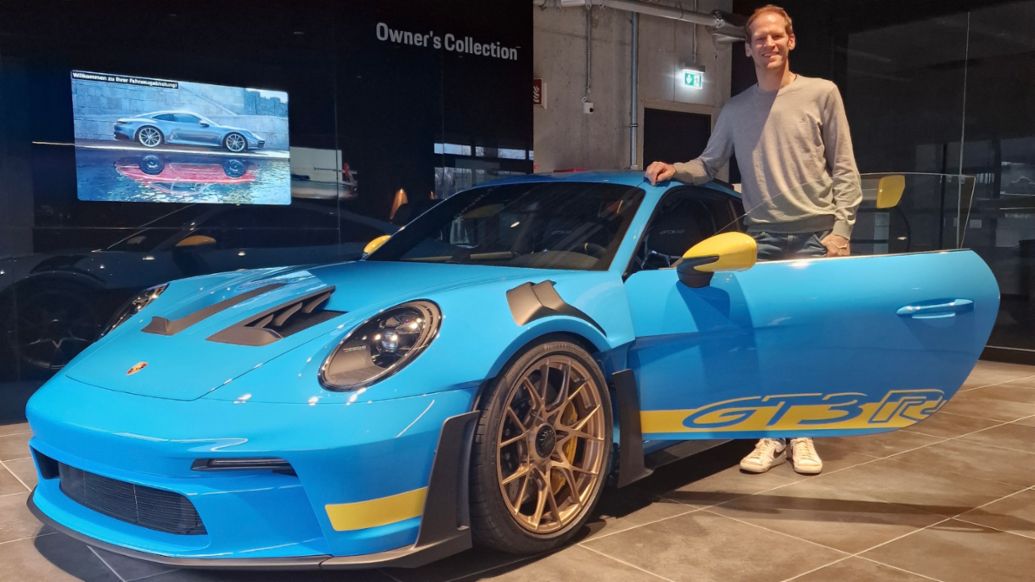
Bergmeister was able to secure an allocation for a GT3 RS with the provision for all-important Paint to Sample. His Daytona winner was painted in Rivierablue, a colour that had been with the driver since his earliest days racing Formula cars in his native Germany. Working closely with Porsche’s Sonderwunsch team, a design was gradually created that would closely replicate the original livery while introducing a number of unique elements to commemorate the anniversary of that special win.
Panels in Rivierablue
Bergmeister specified a car without the bare carbon Weissach Package in order to paint all the panels in the correct Rivierablue. Exterior elements in contrasting Racing Yellow were applied to match those on the TRG race winner and the rear wing was painted in white with side plates in Racing Yellow. On the underside of the rear wing, a Porsche crest was also applied, while further exterior touches included the model name on the rear deck and foil decals on the car’s flanks in matching Racing Yellow.
Inside, Bergmeister specified extended black leather with stitching in contrasting GT Silver and additional Race-Tex covering the dash. The car was also ordered with the Club Sports package that includes a one-kilogram road-legal fire extinguisher, another nod to its thoroughbred predecessor. But the most striking feature of the interior would be the unique carbon fibre door sill panel, the lettering on which emulates the engraving on the Rolex watches awarded to winners of the 24 Hours of Daytona.
After a year-long wait, Bergmeister was finally presented with his bespoke GT3 RS in Zuffenhausen in mid-February, by happy coincidence on his 48th birthday. He credits Sandy-Marc Bauer from International VIP & Special Sales and Boris Apenbrink, Director Porsche Exclusive Manufaktur Vehicles and Options, and his dedicated team with the successful realisation of his dream.
“A lot of people were involved with this project,” Bergmeister says, “helping to get all the little details on there. And everyone who has seen the car since and knows the story behind it really likes it.”
The car is now receiving full paint protection before its maiden outing, with Bergmeister eager for the drier conditions of spring to arrive. “I can’t wait to drive it but first the weather needs to get better. I’m definitely not going to take it out on salty winter roads. It’s a little too precious to me to be a daily driver!”
When the right day arrives, it is certain to be a poignant moment for everyone involved. “I’m still proud of what we achieved back then at Daytona, and this car has brought back those memories already. I’m not usually that emotional, but when I first saw it I got goose bumps. I feel so fortunate that it’s finally done and I’m super-stoked with how it’s turned out.”
